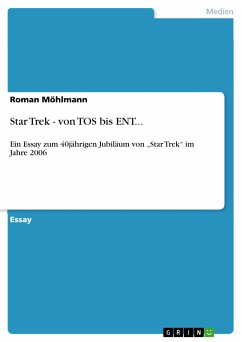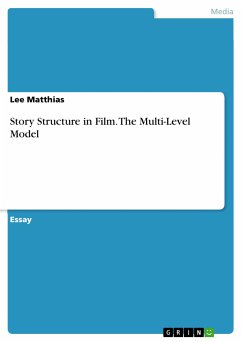Seminar paper from the year 2009 in the subject Film Science, grade: 1,7, Free University of Berlin (John-F.-Kennedy-Institut), language: English, abstract: The Original Series (hereafter TOS) of Star Trek, created by Gene Roddenberry, has been around for a whopping 43 years now. Despite a lack of initial success, TOS had four other series following it as well as now eleven feature films. TOS was the corner stone of the Star Trek universe. The interest behind this paper is the political and ideological subtext of Star Trek in 2009, as well as the commercial grounds behind it. Wasn’t Star Trek dead after Kirk died and fewer and fewer people watched the adventures of Capt. Picard’s crew on the big screen3? What makes this American utopian science fiction so appealing to audiences throughout the world? Why is it necessary to adapt and reinvent a brand from the sixties? How did they do it and what changed the original vision and concept from Gene Roddenberry over time? Star Trek has always incorporated traditional American key conceptual values and myths. How does that translate into the 21st century? How can audiences, new to the concept of Star Trek, relate to it while at the same time getting the entire exposition needed to emotionally partake in this universe? To answer at least some of these questions, I will give a short summary on the history of the franchise and narrative, as well as the mythological and genre implications. Later the plot of Star Trek will be laid out briefly as I analyze, in a more detailed manner, several aspects and narrative devices of the film in regard to its 1960s predecessor. Unfortunately the analysis of the new Star Trek movie will have to be without the original script written by Robert Orci and Alex Kurtzman, which is still not available, neither online nor elsewhere. Apart from that, it can be stated that the film was crafted very much after the final script version since the WGA went on strike right after the script was finished in early November 2007 and director J.J. Abrams, as a member of the WGA, was not allowed to alter anything in the script during filming. However, I hope that through analyzing and comparing the “old” and “new” Star Trek universe, I can offer considerable insight into what is behind the legendary narrative of Star Trek, aside from Hollywood’s lust for dollars and action-packed blockbusters.








